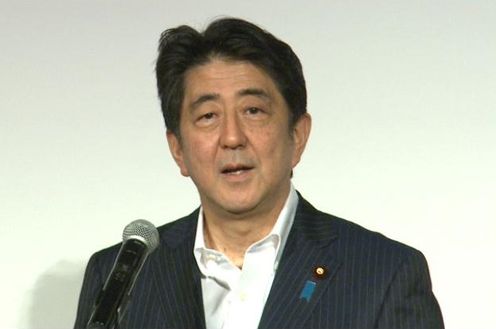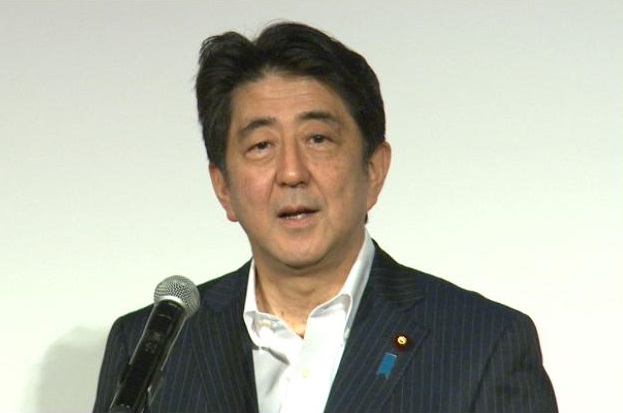Home > News > The Prime Minister in Action > July 2015 > Egg Summit 2015 in Tokyo
The Prime Minister in Action
Egg Summit 2015 in Tokyo
July 31, 2015
[Provisional Translation]
Prime Minister Shinzo Abe attended Egg Summit 2015 in Tokyo held in Tokyo.
In his opening address, the Prime Minister said,
“I would like to offer my heartfelt congratulations on the opening of the Egg Summit to everyone gathered here, representing the chicken egg industry from around the world.
‘Which came first, the chicken or the egg?’ To address this well-known philosophical question, when it comes to summits, we can at least say that the Egg Summit is being held ahead of the G7 Ise-Shima Summit to be hosted by Japan next year.
With the registration of Washoku, or Japanese cuisine, as an UNESCO Intangible Cultural Heritage, and the attention paid to Washoku at EXPO 2015 Milano , the world is now showing greater interest in Japanese ingredients.
Overseas, there is no custom of eating eggs raw. However, in Japan, there are many unique ways of eating eggs, such as the use of raw eggs for sukiyaki, or Japanese beef hot pot , and on top of rice. Japanese chicken eggs are produced in such a way that they can be eaten raw.
In recent years, outbreaks of avian influenza have threatened us across borders because of migratory birds. Efforts to prevent infectious diseases before they occur, as well as to prevent the spread of outbreaks, will only become more important in the future.
Against that backdrop, the sharing of Japan’s advanced hygiene management technology and disease control information is extremely significant, in terms of the contributions they can make to the development of the food hygiene field in Asia, as well as to improving nutrition.
This is also connected to the promotion of Abenomics, which, through expansions of Japanese companies overseas, contributes not only to the growth and development of the Japanese economy, but the world economy as well. I would like to conclude my remarks by expressing my hope that this Egg Summit will be an opportunity leading to efforts that ensure chicken egg safety throughout the world, including Asia, as well as the development of related industries.”


